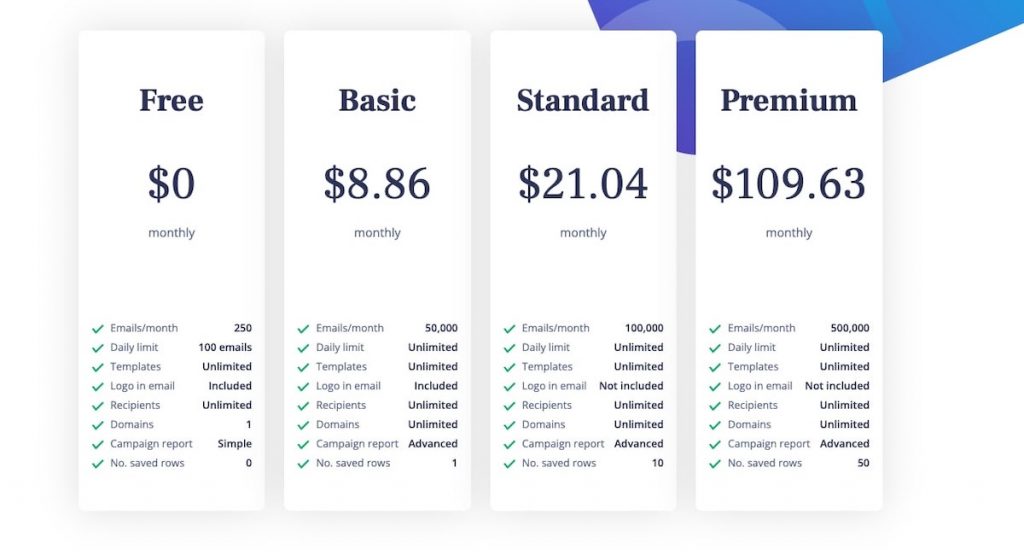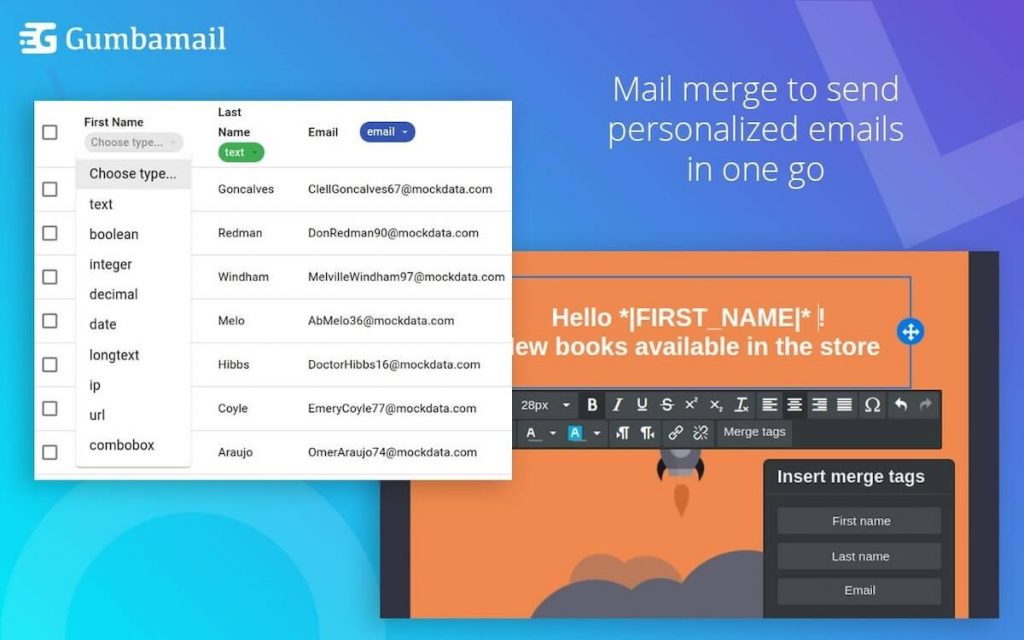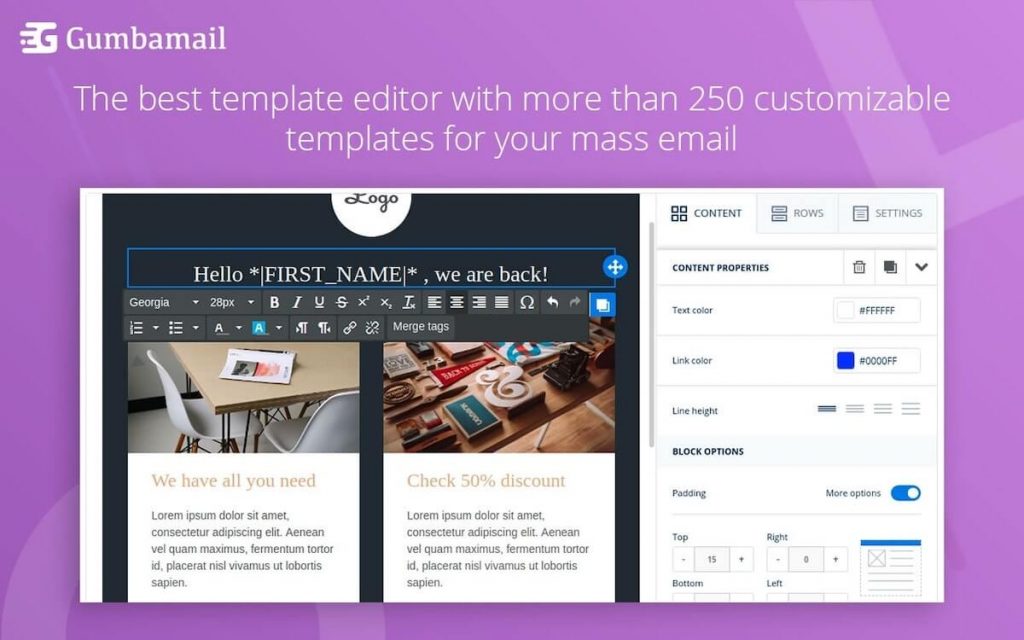4 Mass Email Marketing Myths Every Small Business Owners Should Know
Owning a small business isn’t easy, which is why you need the right tools in your arsenal to reach potential new customers. The right marketing strategy — along with the technology to put your plan into action — allows you to work smarter (not harder) as a business owner.
And when it comes to marketing, there are few tools more valuable than email.
There are roughly 4.3 billion email users worldwide — almost half of the global population. Not only is email a widespread tool, but it’s the preferred communication method for the majority of consumers. In fact, according to Adobe, half of consumers (50%) prefer to communicate with brands over email. This easily beats out other communication channels, such as direct mail (20%), phone calls (7%), text messages (7%), and even social media (7%).
Unfortunately, research suggests that roughly 60% of small business owners don’t use mass email marketing to promote their business. If you’re considering launching an email marketing strategy, keep reading. Below, we dive into four myths every small business owner must know before selecting an email service provider or sending their first campaign.
4 of the Most Common Myths Around Mass Email Marketing
Mass email marketing can help you grow your audience, educate leads on your value proposition, and ultimately land more sales for your business. Unfortunately, there is a large amount of disinformation surrounding email marketing. Below, we debunk these common myths and show you which strategies to use instead.
Myth 1: You Need an Expensive Platform to Get the Job Done

Many small businesses don’t launch an email marketing strategy because they think it’s outside their budget — but that’s not necessarily the case.
True, some marketing automation platforms do contain abhorrent pricing tiers. Case in point: Pardot, the email marketing software owned by Salesforce, costs a jaw-dropping $1,250 per month for the most basic plan (their premium plan runs $15,000 monthly, or $180,000 over the course of the year). Other platforms, like SendInBlue and Mailchimp, offer lower starter packages, but drastically increase rates as you grow your list (translation: You’ll get monetarily punished for running a successful lead generation campaign).
With that being said, not all email marketing platforms come with such outrageous price points attached. Gumbamail, a bulk email marketing service that works in conjunction with your existing Gmail account, offers a free plan to help small business owners get their email marketing strategy off the ground. Paid plans start at less than $9 per month, and prices don’t increase as you add more subscribers to your contact list.
Myth 2: You Can Email Whomever, Whenever You Want
While email can be a powerful tool to help market your business, it comes with a very real problem attached: spam. According to Statista, there are roughly 283 billion spam emails sent every month, crowding consumers’ inboxes.
Unfortunately, some of these spam messages are sent by business owners who don’t know they’ve done anything wrong. Many times, these businesses purchase marketing lists with thousands of emails attached, then start bombarding them with messages.
But here’s the truth: Before you email anyone, you must have their consent. The U.S. CAN-SPAM Act and EU-GDPR laws clearly state each subscriber must willingly opt-in to your list before you start emailing them. In addition, every email must contain an unsubscribe link, and any opt-out requests must be honored within a reasonable amount of time.
Fortunately, all of Gumbamail’s 800+ pre-designed email templates come with an unsubscribe link included. All unsubscribe requests are handled automatically, so you don’t need to worry about manually removing subscribers from your list (or winding up flagged as spam).
Myth 3: The More People Who Receive Your Message, the Better

At one point, marketers approached email like a numbers game, believing the more people they reached, the better their chances of landing a sale. Unfortunately, this strategy rarely leads to an increase in conversion rates — instead, it leads to a boost in unsubscribes and a general distrust of your company.
Instead, the best way to approach mass email marketing is to only email subscribers when your message is directly related to your needs. Frankly, it’s unrealistic to expect every single person within your email list to have the same needs, frustrations, or pain points.
Instead, segment your list based on specific criteria, sending different messages to each group. Research shows that segmented email marketing campaigns produce a 30% higher open rate and 50% more click-throughs than bulk emails sent to an entire list.
Remember: To segment your list based on a certain criteria, that data first has to exist. Be sure to use a bulk email service, like Gumbamail, that allows you to use merge tags and custom fields within your database. You can create fields such as past order history, demographic data, geographical location, or the relationship to your company (such as customers, prospects, vendors, or employees), then use that data to send to different segments.
Myth 4: Every Email Blast Should Lead to a Direct Sale
As a business owner, you want your company to grow. But when it comes to email marketing, you need to have a little patience, knowing that building trust with your audience now pays dividends later on.
Research shows that 92% of consumers who visit your landing page for the first time aren’t ready to buy. Therefore, instead of sending them transactional emails where the only call-to-action (CTA) is to buy a product, send them valuable, educational nurture campaigns to help deepen your connection to your audience. Build an automated workflow containing a number of emails related to industry news, client testimonials, new product launches, or even third-party research. In other words, prioritize positioning yourself as a trusted thought leader in your industry first, and launching your sales pitch second.
To send your list automated workflows, be sure to use a marketing tool that allows you to schedule emails in the future. Gumbamail allows you to send campaigns immediately or schedule them in advance, allowing you to educate your subscribers over time. Plus, Gumbamail offers built-in advanced reporting metrics so you can track engagement in real-time, helping you fine-tune your content.
Use Gumbamail to Refine Your Mass Email Marketing Efforts

Email marketing is a powerful tool that helps small businesses owners generate more leads, position themselves as thought leaders in their respective industries, and ultimately drive more sales. Unfortunately, there are plenty of myths surrounding mass email marketing that we would like to debunk.
A reputable email provider doesn’t have to drain your marketing budget, and you shouldn’t inundate your entire list with spammy messages. Instead, you should use segmentation to help personalize your content, and build trust through educational drip campaigns.
Gumbamail is the best email platform for small businesses because it’s affordable, intuitive, and works in conjunction with your existing Gmail account. Gumbamail’s functionality includes a drag-and-drop email builder, 800+ pre-designed email templates, advanced reporting metrics, and built-in database management. Plus, each of Gumbamail’s email designs automatically contains an unsubscribe link so you won’t wind up flagged as spam.
Ready to see how Gumbamail’s free email plugin can transform your marketing strategy? Download the Google add-on to get started.


